|
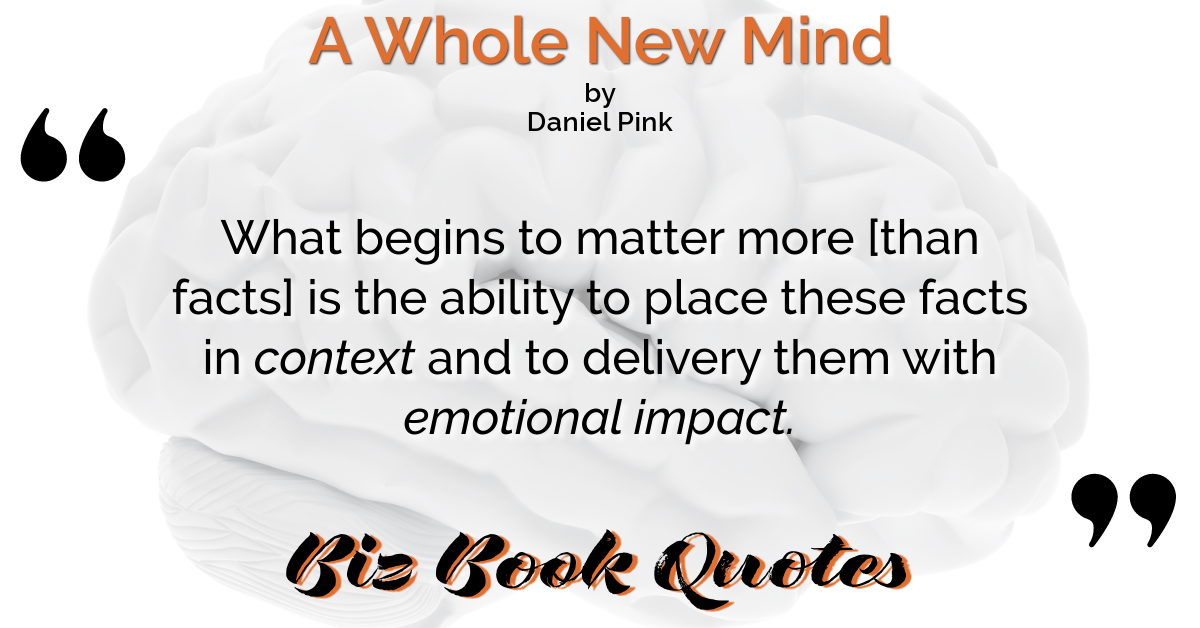
|
A Whole New Mind:
What begins to matter more [than facts] is the ability to place these facts in context and to delivery them with emotional impact.
|
103 |
|
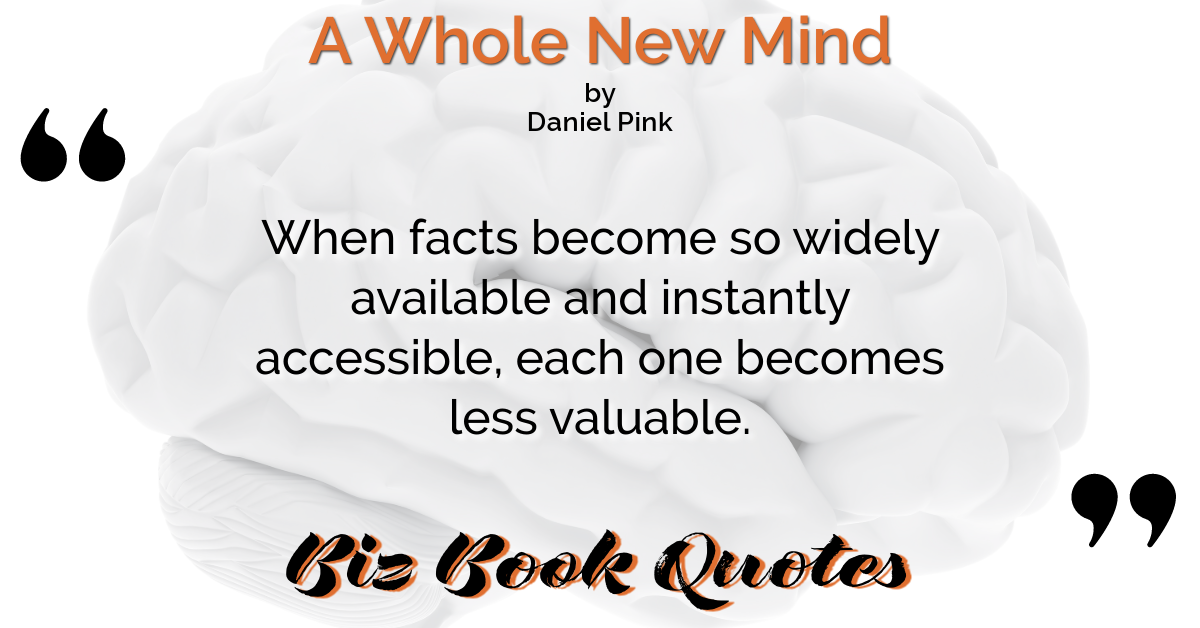
|
A Whole New Mind:
When facts become so widely available and instantly accessible, each one becomes less valuable.
|
103 |
|
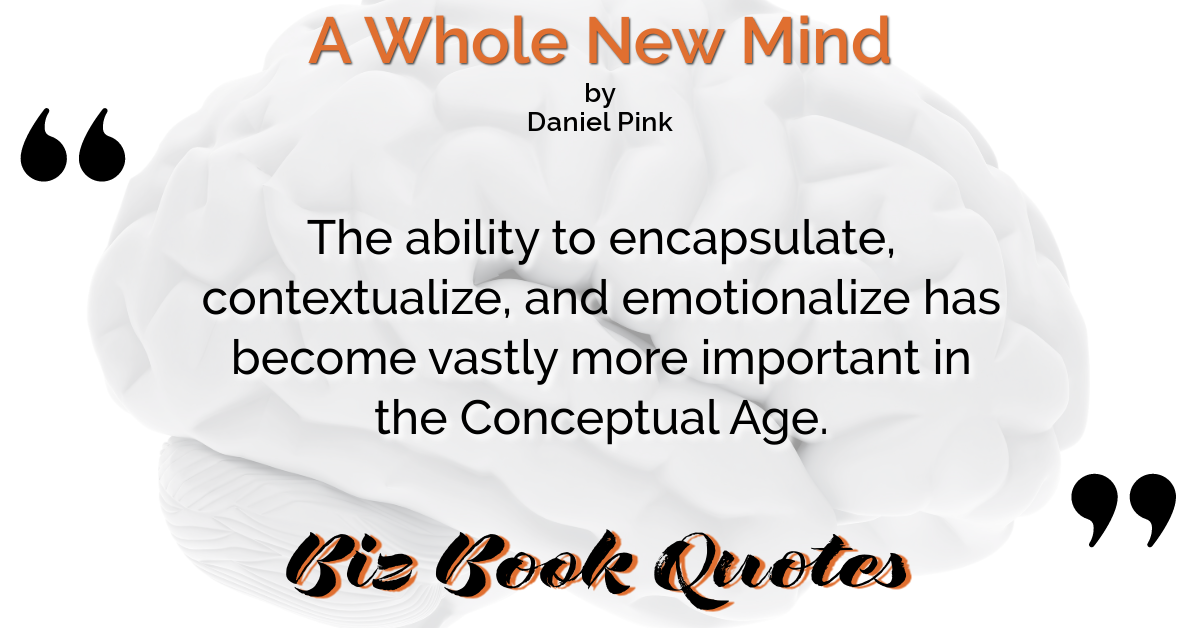
|
A Whole New Mind:
The ability to encapsulate, contextualize, and emotionalize has become vastly more important in the Conceptual Age.
|
104 |
|

|
A Whole New Mind:
Successful businesspeople must be able to combine the science of accounting and finance with the art of Story.
|
108 |
|
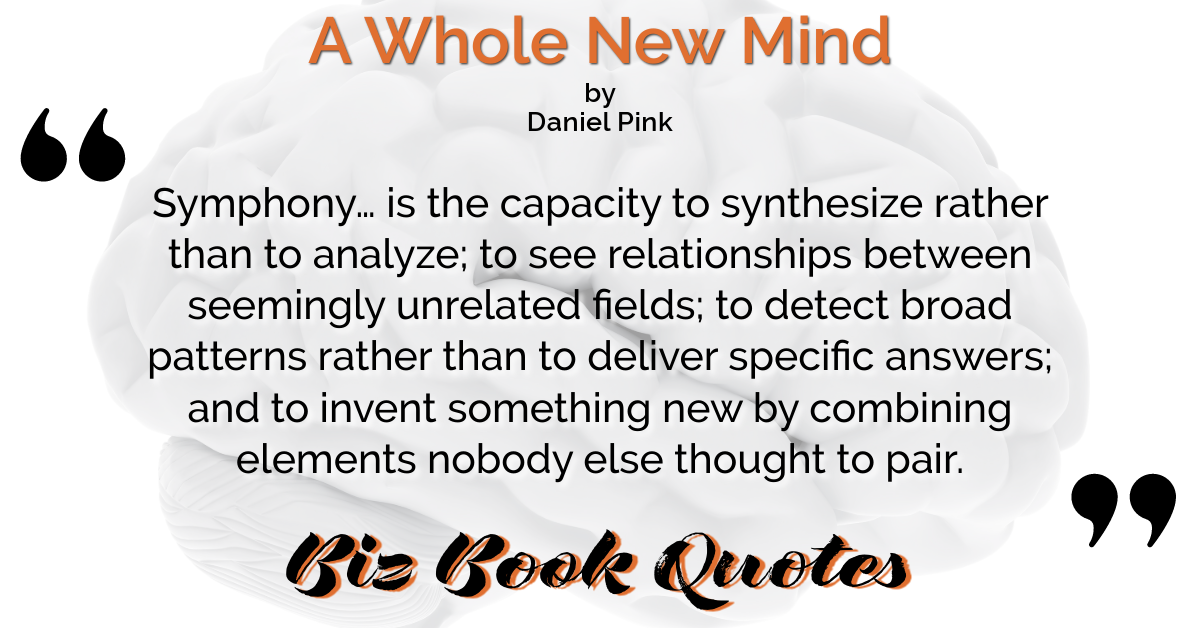
|
A Whole New Mind:
Symphony… is the capacity to synthesize rather than to analyze; to see relationships between seemingly unrelated fields; to detect broad patterns rather than to deliver specific answers; and to invent something new by combining elements nobody else thought to pair.
|
130 |
|

|
A Whole New Mind:
People who hope to thrive in the Conceptual Age must understand the connections between diverse, and seemingly separate, disciplines.
|
134 |
|

|
A Whole New Mind:
Most inventions and breakthroughs come from reassembling existing ideas in new ways.
|
138 |
|
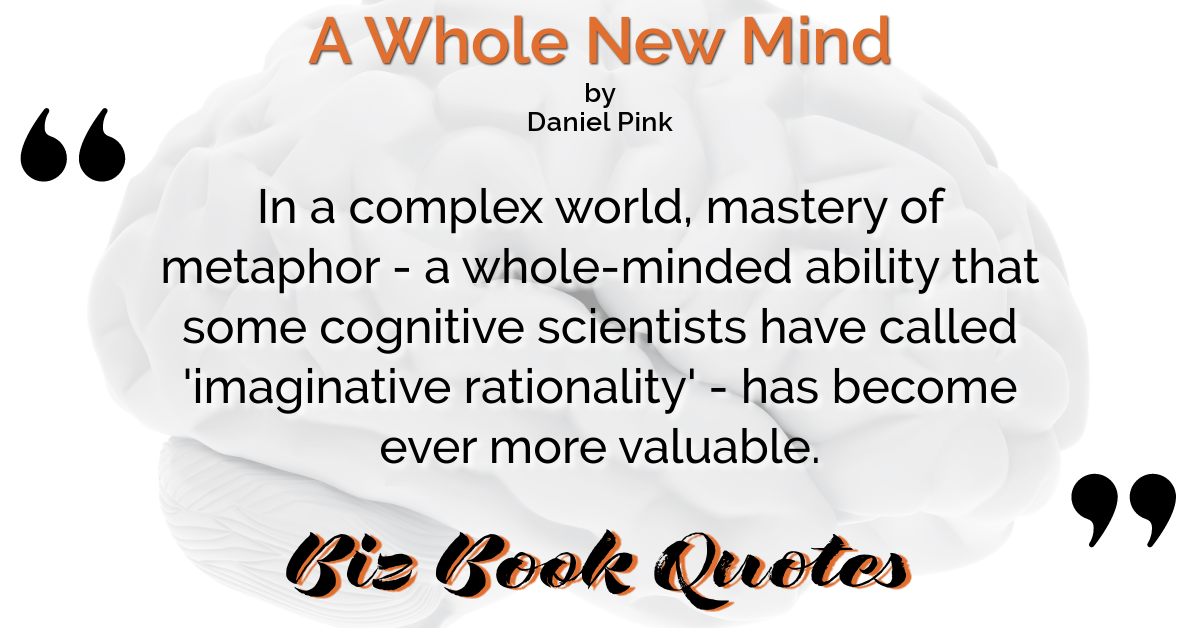
|
A Whole New Mind:
In a complex world, mastery of metaphor – a whole-minded ability that some cognitive scientists have called ‘imaginative rationality’ – has become ever more valuable.
|
139 |
|
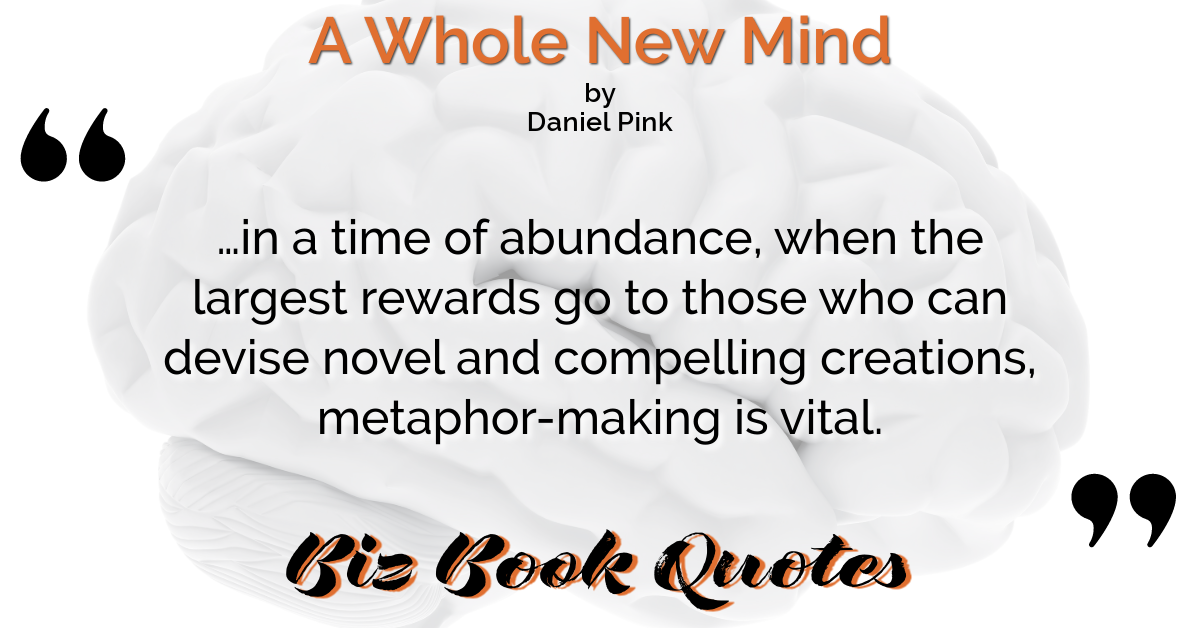
|
A Whole New Mind:
…in a time of abundance, when the largest rewards go to those who can devise novel and compelling creations, metaphor-making is vital.
|
139 |
|
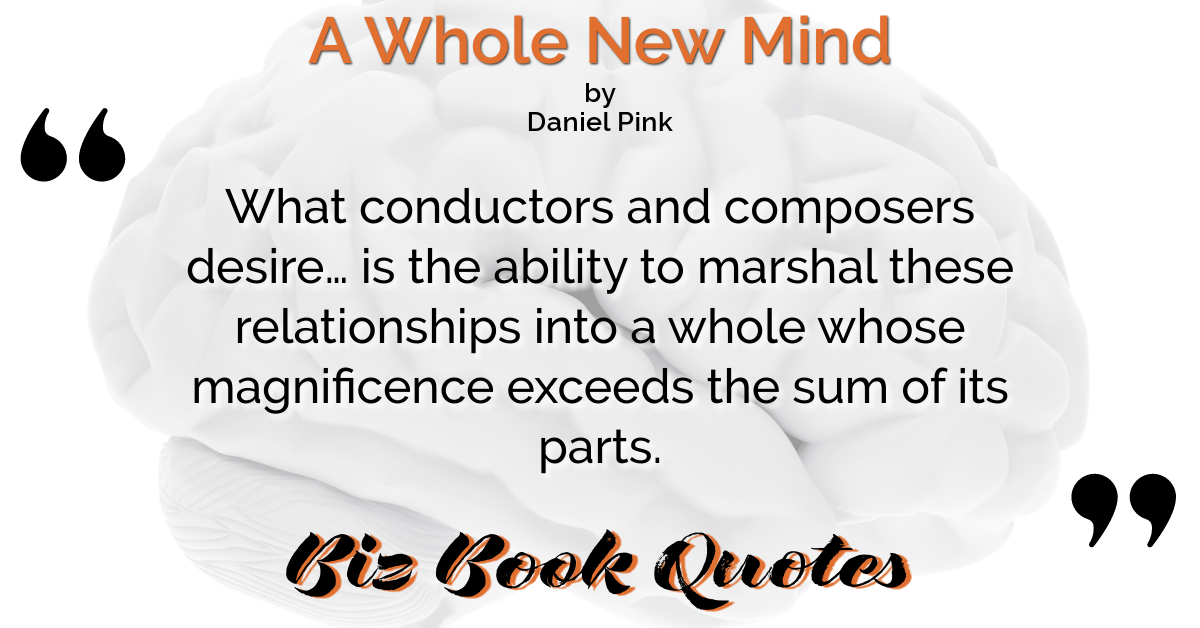
|
A Whole New Mind:
What conductors and composers desire… is the ability to marshal these relationships into a whole whose magnificence exceeds the sum of its parts.
|
141 |











